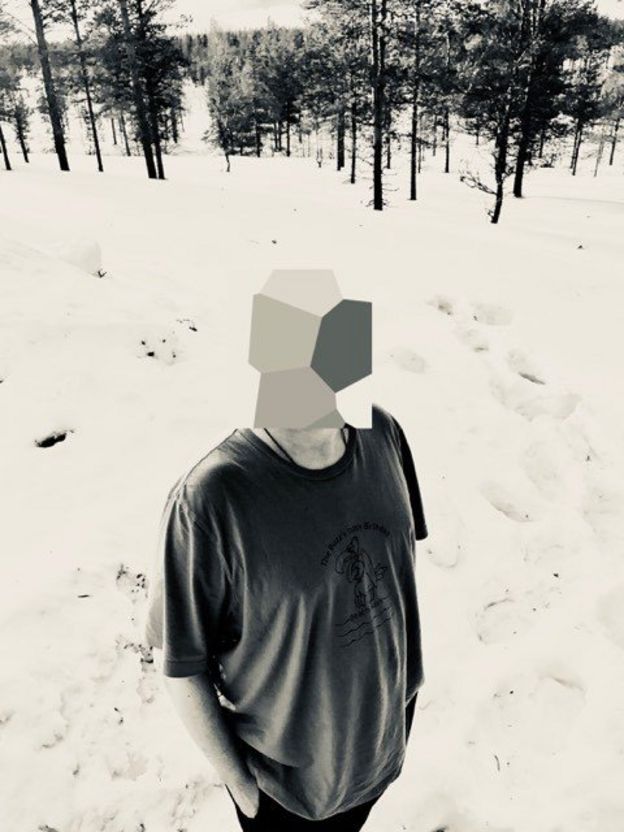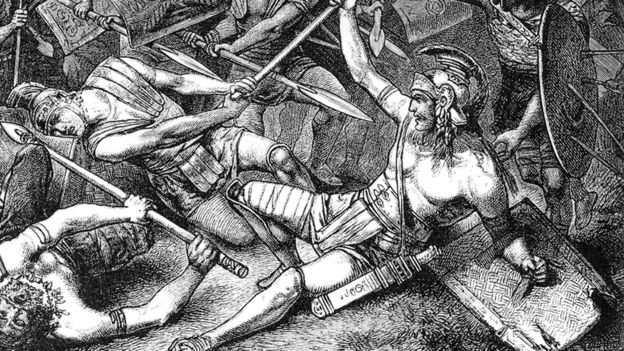
Earlier this month, Facebook announced it would be using facial recognition to let users know every time a photo of them had been uploaded to the site.
Such a feature would be extremely useful to one man - public-relations professional Jonathan Hirshon, who has managed to stay anonymous on the social network for the past 20 years.
He has more than 3,000 friends on Facebook and regularly updates his profile with personal information - where he is going on holiday, what he has cooked for dinner and the state of his health.
But what he has never shared on the social network, or anywhere else online, is a picture of himself.
It is, he said, his way of "screaming my privacy to the world".
"I choose to share virtually everything about myself on social media, but my face is the essence of me individually and this is about refusing to give up the last piece of identifiable information that I can control."
One of the big debates of 2018 is going to be around our personal information - how we share it, what Facebook, Amazon and Google do with it and what should happen when it is stolen or hacked.
Part of that discussion will be played out in tough new EU laws coming into force in May, which aim to give citizens back control of their data.
Some believe the General Data Protection Regulation (GDPR) will turn personal data into a commodity - as valuable as oil - that citizens can share and sell for their own benefit.
Mr Hirshon wishes the US would instigate similar laws but is doubtful that it will immediately lead to citizens getting rich on their own information.
"I'm totally in favour of it but in order to accomplish that, people will have to totally change their mindset when using social media.
"Right now, we enjoy them as [a] totally free service monetised by ads targeted very specifically at us because the services know so much about us.
"Until such time as we choose to pay for these services, when [we have] the option of keeping our data private and monetising it ourselves, the idea will remain just that - an idea."
He is also well aware that the internet is the least anonymous place on Earth.
"Privacy is an illusion - the reality is that as you go across the internet, you leave traces of yourself everywhere."
He made a decision about twenty five years ago when the internet was still in its developing period to keep his face off the web. He clearly enjoys the status of being the internet's mystery man.
"When people ask me why I do it, I give them four options. One: I am shy. Two: I used to work as a spy. Three: I am on the witness protection programme. Four: all of the above."
"I refuse to confirm or deny which one is the truth."Increasingly, our faces are becoming part of our personal data footprint.
Facial recognition has been used by Facebook since 2010 to identify and tag users.
Credit card companies are looking at using selfies to allow people to pay for things, while schools are considering the technology to check attendance and law enforcement already turns to it to track down criminals.
Apple's latest phone, the iPhone X, uses facial recognition to identify the owner and keep the handset safe.
Perhaps surprisingly, Mr Hirshon is open to the idea.
"I need to upgrade my phone and I want to replace it with an iPhone X."
"I trust Apple with my data. Many of the points of facial recognition are kept locally on the phone. Apple doesn't get that information."
But he is clear about one thing.
"I wouldn't buy a Google phone."
From people taking selfies to tourists on the lookout for the perfect shot, the offline world is now full of people snapping pictures.
And digital copies will often follow as sharing our lives on Instagram and other social networks becomes a normal part of the daily routine.
"I have learned to turn my head when I'm in a crowd," said Mr Hirshon.

He regularly speaks at conferences - places he regards as "high risk" for his online anonymity crusade.
His first slide - no matter what the topic he is speaking about - is always a picture of a camera with a red slash through it.
He also asks the organisers to remind the audience that no-one should take and post a picture of him online.
Staying anonymous is quite a job.
He regularly trawls the internet looking for pictures that may have escaped his notice, but remarkably in 25 years has found only two.
More @ http://www.bbc.com/





0 comments: